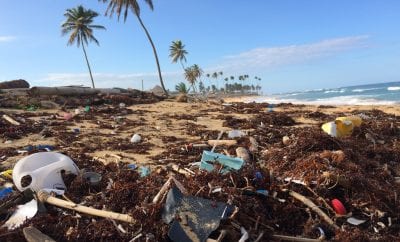
News
New Rollbacks of Pollution Protection Could Seriously Harm U.S. Wetlands
The White House is gearing up to remove pollution protection measures that were implemented during the Obama administration, which could result in serious harm to millions of acres of wetlands. The move could put a large amount of vital wildlife at risk of serious degradation, and could even result in pollution being spread into drinking water.
The plan includes proposals to scale back the list of waterways that require federal permits to be able to pollute. Called the ‘Waters of the United States’ (WOTUS), the proposal is currently being reworked by the White House, along with the Environmental Protection Agency, and the Army. Andrew Wheeler, administrator of the EPA described the regulations imposed during the Obama-administration as a “power grab” that was used only to institute control over landowners, farmers, and developers.
Pollution in these waterways includes agricultural runoff such as pesticides and fertilizers, along with other forms of industrial waste. This can easily make its way from smaller waterways into larger bodies of water, which can run out to ecologically fragile biomes or even tributaries which provide drinking water for more than 100 million Americans.
Wheeler defended the actions of the White House and the EPA, stating the previous regulations were the cause of a “lot of anger in the west over federal overreach.” With the new rules, he hopes it “..ends years of uncertainty over where federal jurisdiction begins and ends.”
To environmental experts, it is clear that little to no consideration is being taken into consideration as to how much these changes could affect countless wildlife, marine ecosystems, and water reserves. Mark Ryan, a former water expert at the EPA and co-author of the original WOTUS regulations says, “They’re trying to sidestep the science. The science is pretty clear that whatever happens at the top of the watershed affects the bottom of the watershed.”
This is echoed by the fact that the current EPA water chief, David Ross, told reporters that the EPA did conduct any modeling for the proposed changes, nor did they take into account the potential impact of how current climate change is already impacting our nation’s waterways. Ross said, “We’ve considered some of the scientific terminology and scientific information we have, but our job is to really draw a line where we think our legal authority allows us to do that.” Going forward, expect the EPA’s reversal of protections to be met with fierce resistance by environmental groups.





0 comments